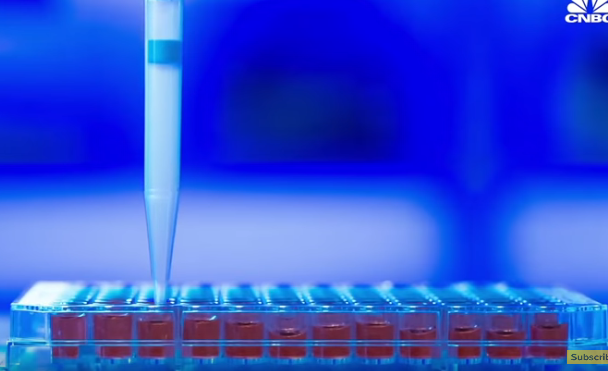[Trump’s “Buy American” Executive Order]
Shah: The executive order would do virtually nothing to help Americans through the current pandemic. In fact, it’d destabilize drug supply chains, making it harder to discover and distribute vaccines and treatments to patients.
Photo: YouTube
Will Trump make COVID-19 crisis worse by disrupting drug supply chains with “Buy American” executive order?
The Trump administration fears America has lost its ability to mass-produce the medicines and medical supplies needed to fight the coronavirus and other, future pandemics.
So it’s considering an executive order to bring drug and medical-supply manufacturing back to the United States.
That might sound like a good idea. But the devil is in the details. The executive order would do virtually nothing to help Americans through the current pandemic. In fact, it’d destabilize drug supply chains, making it harder to discover and distribute vaccines and treatments to patients. Administration officials would be wise to abandon their plan.
The “Buy American” executive order would force federal agencies to purchase American-made drugs and raw ingredients. It’d also attempt to jumpstart the construction of new pharmaceutical manufacturing plants through a combination of regulatory relief and direct funding. According to the administration, this process could take place over 30 to 40 days.
That timeline is unrealistic — as any drug supply chain expert can attest. It can take up to a decade and around $2 billion to build a new pharmaceutical manufacturing facility, secure all the necessary equipment and supplies, hire and train workers, and take the thousands of other steps needed to sustain such operations.
Even with emergency funding and regulatory waivers, it’d be virtually impossible to have numerous additional drug plants up and running within months. America also lacks enough trained chemists to synthesize adequate quantities of “active pharmaceutical ingredients” — the chemicals that make up medicines.
Right now, a majority of the pills and injectable therapies that Americans take are manufactured domestically. However, about 80 percent of active pharmaceutical ingredients are produced overseas.
History shows that these geographically diversified supply chains are a strength, not a weakness. When Hurricane Maria slammed Puerto Rico in 2017, it disrupted the operations of 50 pharmaceutical firms. But firms were able to limit drug shortages by working with the FDA to source medicines from manufacturing plants abroad – and innovative drug companies were hardly even fazed.
As former FDA commissioner Scott Gottlieb explained in a recent interview, “The branded companies that were manufacturing drugs there had very hardened facilities. They had redundant generators, they had months and months of fuel on hand, they had no disruptions in their manufacturing because their facilities were so well equipped.”
These diversified supply chains will help in the current crisis, too. It makes no sense to stop buying supplies from overseas while our own country is facing imminent, widespread shutdowns. Europe alone houses over a quarter of all API facilities that make ingredients for the United States market.
Trying to forcibly re-shore the production of drugs’ active pharmaceutical ingredients could also violate America’s obligations under the World Trade Organization agreements, inviting retaliatory actions from our trading partners. With our economy in free fall, the last thing we need right now is a trade war escalation.
Reshoring the entire supply chain would also raise the price of medicines — the exact opposite of the Trump administration’s goal. Manufacturing medical supplies and ingredients in developed markets like the United States can be up to five times costlier than doing so in India or China.
The administration’s executive order would endanger patients and alienate America’s trading partners. In times of crisis like this, rash actions can feel satisfying — but cause great damage. Let’s hope cooler heads prevail.
Sandip Shah is founder and president of Market Access Solutions, which develops strategies to optimize patient access to life-changing therapies. This piece was originally published by the Asbury Park Press.








